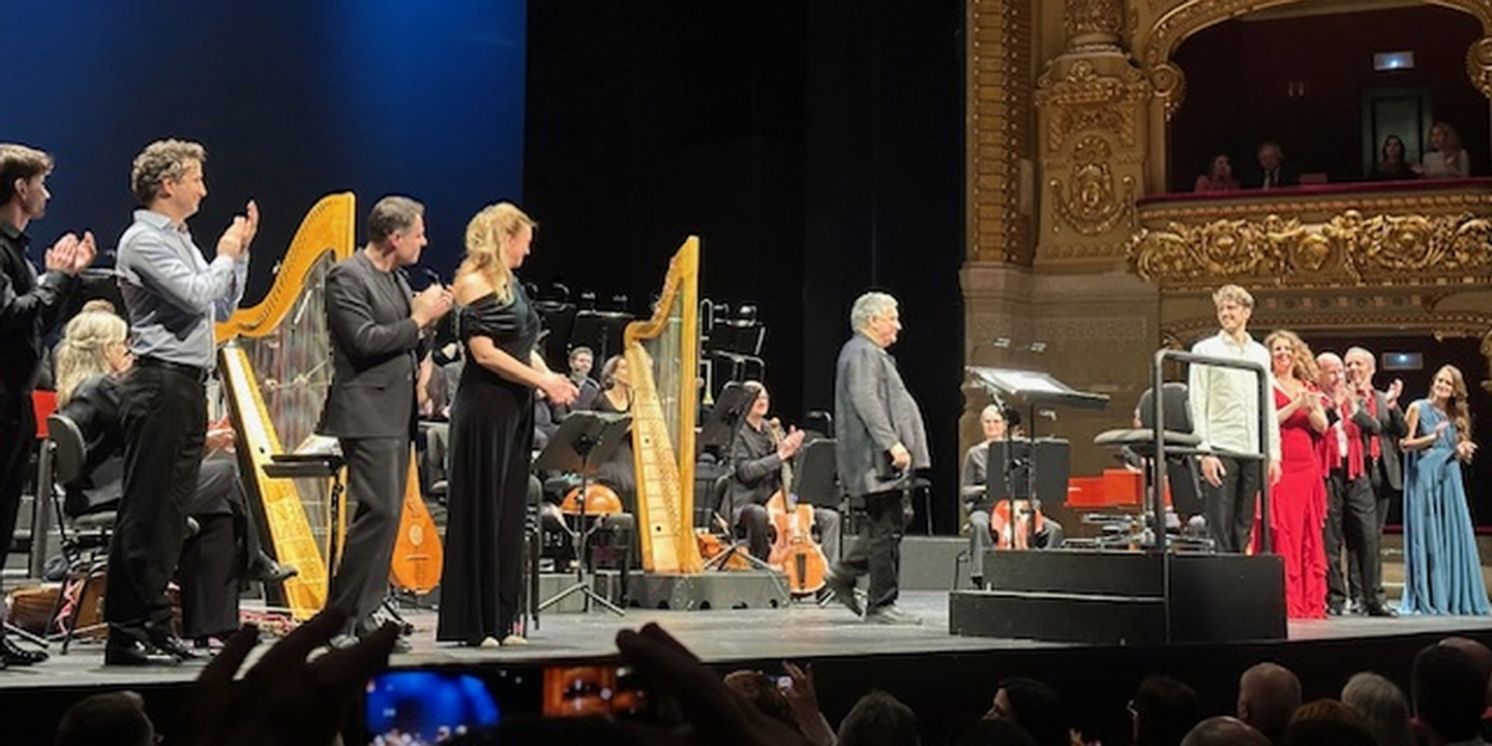Review: Lively ORFEO in Concert at Barcelona's Liceu Opera from Maestro Rene Jacobs
Monteverdi’s version of the classic story is considered the oldest opera in regular performance

Composers can’t seem to keep away from the Orpheus story. Why not? It’s a juicy one, drawing on the Greek myth about a man who tries to use the power of music to rescue his beloved wife from Hades. All he has to do is keep his eye on the prize, ie, not turn around to look at his beloved without telling her why, and he can save her. Ay, easier said than done and complications ensue!
The first operatic version on record was Jacob Peri’s EURIDICE in 1600 and the most recent was Matthew Aucoin’s updated EURYDICE, which the Met staged in 2021 (after a debut in Los Angeles), based on Sara Ruhl’s play/libretto that gave the best aria to the wife in question.
Several years back, the Liceu Opera in Barcelona asked conductor Rene Jacobs, an expert in things Baroque, to look at three of the operas on the subject—by Telemann, Gluck and Monteverdi—and see what new insights he could find. He finished up his work this season with the Monteverdi take on the subject, ORFEO, called “a musical fable,” which dates back to 1607 and is considered the oldest opera to be regularly performed.
The result was a concert performance that was quite informal and sometimes felt like we were, in style at least, at a rock concert rather than the opera house—not that there is anything wrong with that—except for the intimate nature of the piece.
“Intimate” doesn’t mean skimpy, for the work, with its frequent forays into madrigal-like set-pieces, was never less than generous with its music. From the start, the Monteverdi version sounds much more familiar than I expected (since I’ve heard the Gluck version more often than not), complete with its vibrant horn introduction bursting forth and great fun to listen to under Jacobs’ leadership.
As I implied, though this was an opera in concert, there wasn’t a group of singers at their music stands, even though I would be pressed to called it semi-staged. Here, they moved around quite a bit, drawing the audience into its embrace, making the whole thing feel much more cozy than this type of performance often is.
The cast was largely unfamiliar to me but they managed to entrance nonetheless. The story is introduced by the Messenger, passionately sung by mezzo Olivia Vermeulen (who sang a number of other roles as well), while there was an utter charm and delicacy to the singing of soprano Isabel Pfefferkorn as Euridice (who also showed up in the chorus).
All the operatic versions of the story give Orfeo more than enough to do, but somehow baritone Yannick Debus, with his substantial voice and stage presence, seemed more than the sum of his parts. (Or, I should say “part,” since he was the only one in the cast to have a single role.) His smooth coloratura blended well with the orchestral players and if the opera has a “star” role, it was certainly his.
Other standouts in the company were Nikolay Borchev, Raffaele Pe and Gregoire Mour, with Neal Davies and Eva Zaicik doing neat turns as Pluto and Proserpina (and elsewhere).
The Freiburger BarockConsort chamber players--an offshoot of a larger Freiburger ensemble--under Jacobs were wonderful. They were deft in their interplay with the singers, yet bold in their strictly orchestral playing. The detailed sounds of the strings playing off the winds, and the lush brass, were a distinct pleasure from beginning to end. As for the singers of the Zurcher Sing-Academie, as various shepherds, nymphs and denizens of the underworld (also bacchantes and satyrs), they added much pleasure to the evening.
Does the opera have a happily-ever-after ending, as in other versions of the story? Not exactly. There are, in fact, two endings: one where Orfeo flees the bacchantes, the other where he becomes a god, thanks to the intercession of Apollo (Borchev).
The Met has talked about presenting some concert performances in its season as a cost-cutting measure. They could do worse than use the Liceu model, which not only uses the pared-down style in adding works to its season, but brings outside ensembles to perform them. I saw a semi-staged AGRIPPINA in Barcelona with Joyce DiDonato and the players of Il Pomo d'Oro before she did the full production at the Met. The singing was no less divine.
Photo: Curtain calls for the ORFEO company (Rene Jacobs, center) at the Liceu in Barcelona.
Reader Reviews
Videos

